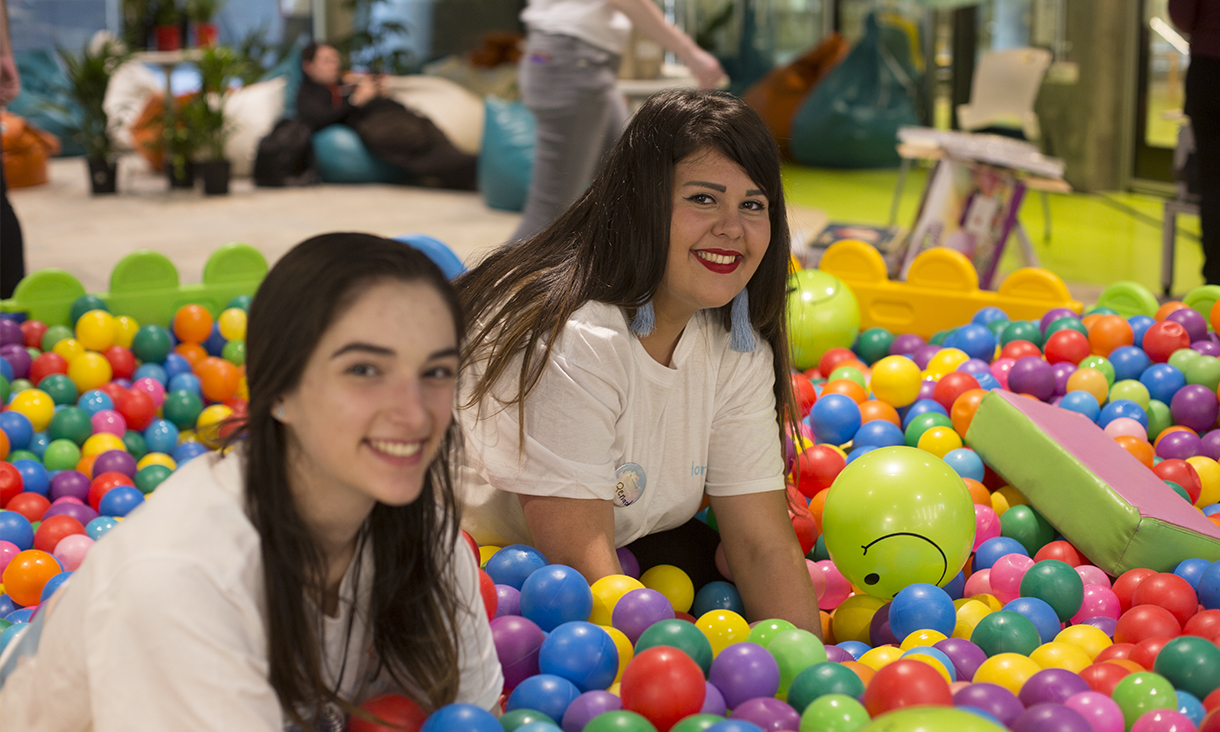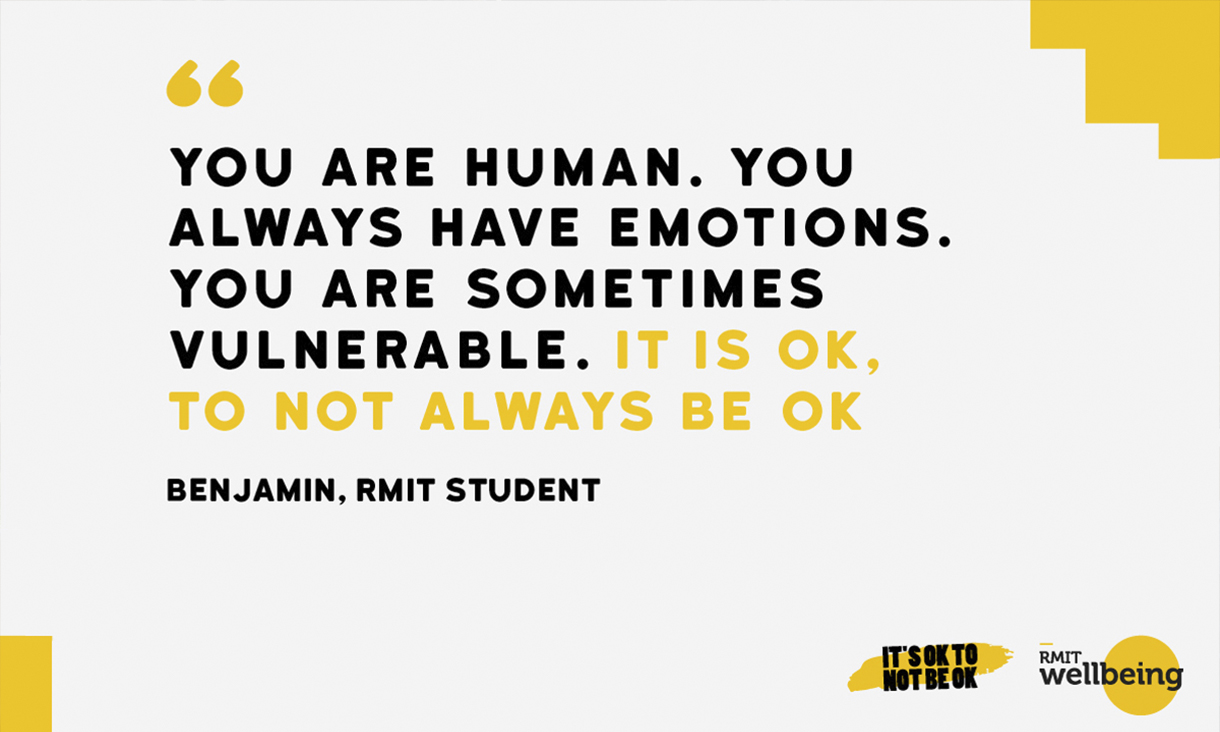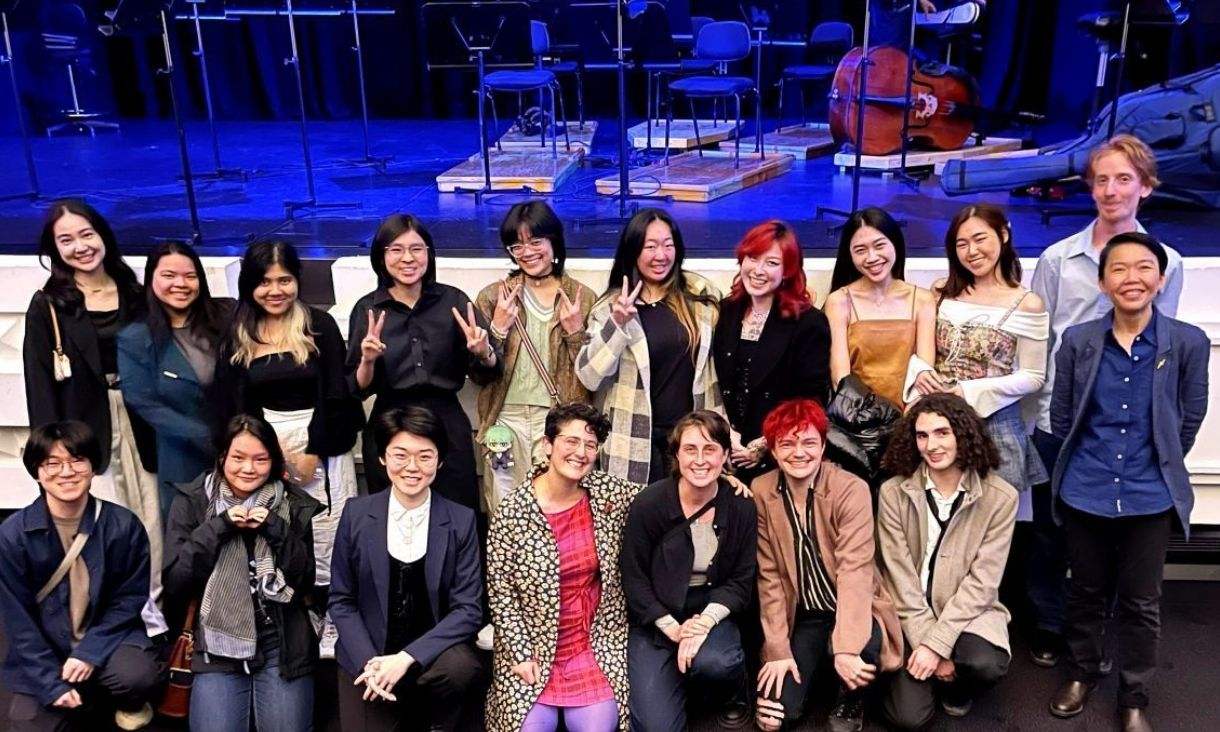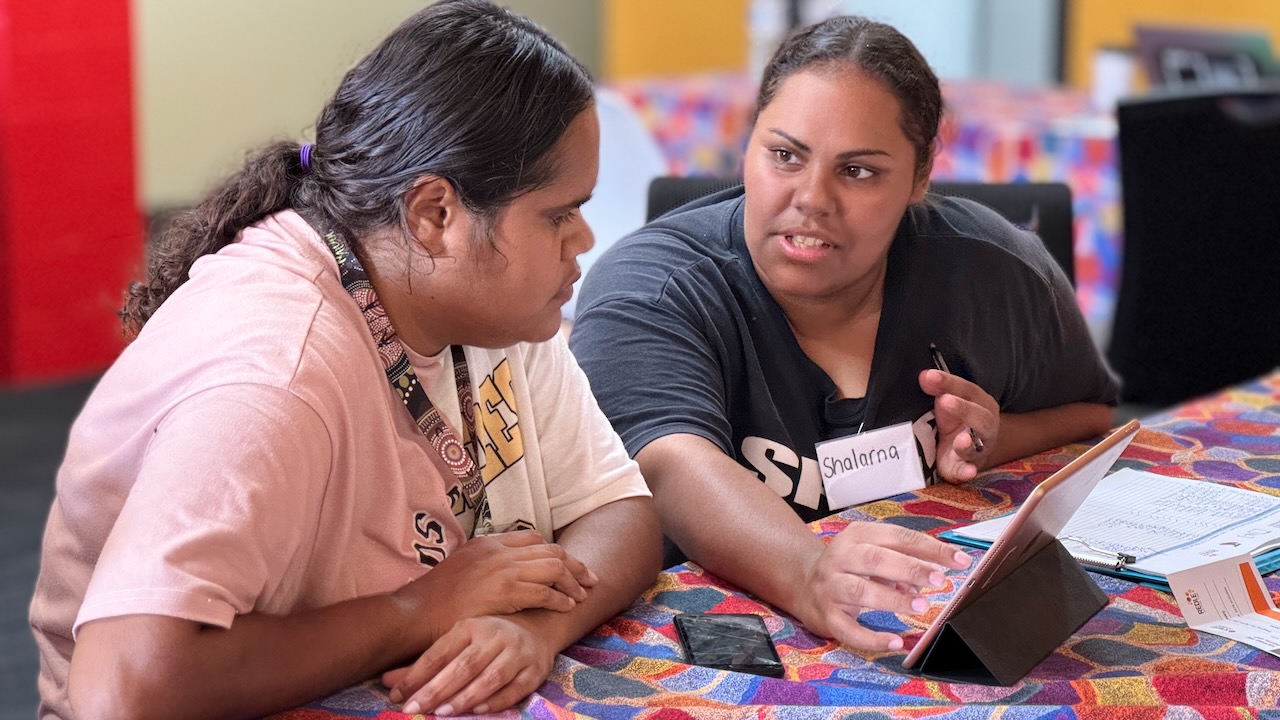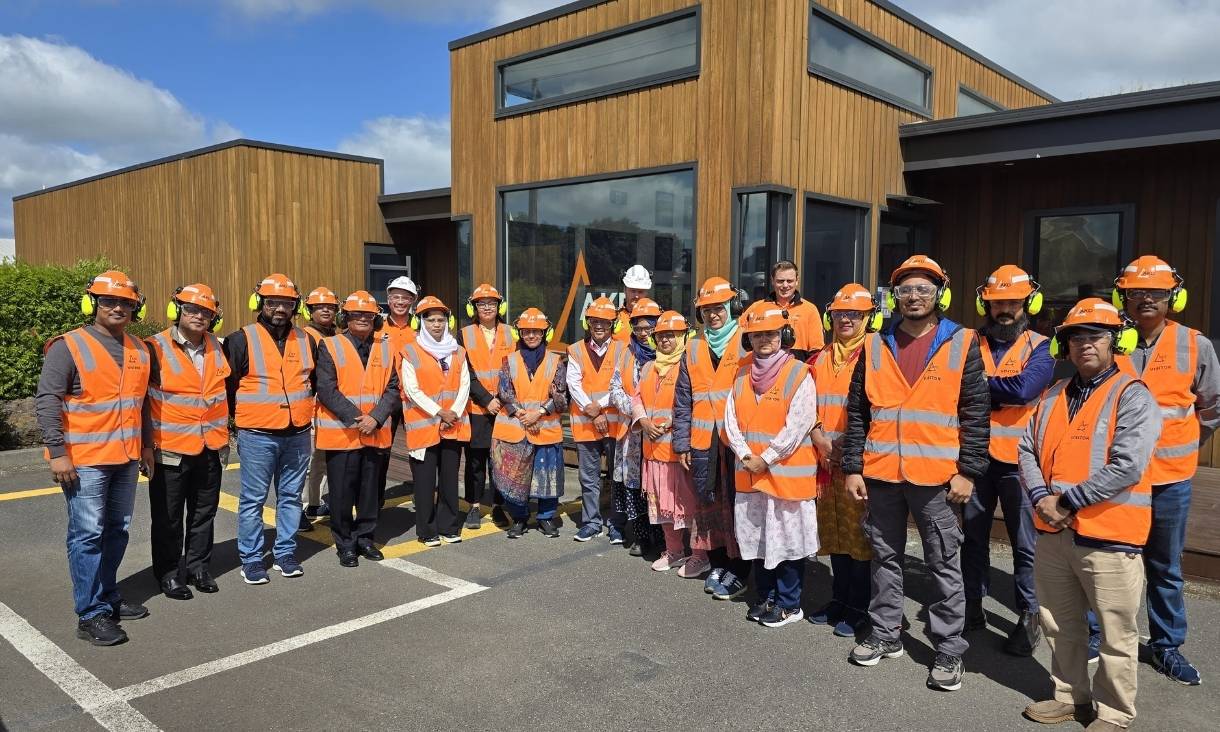With one in four Australian students expected to experience a mental health challenge while at university according to youth mental health organisation Orygen, 40 students set about tackling this real-world problem through an innovative pilot program.
The students formed a group called Foremind with the aim of building mental health awareness among students, decreasing social isolation and creating a proactive student mental health culture.
Foremind’s first event – Wind Down Wednesday – was held today to coincide with World Mental Health Day.
A message wall for students to express support, anxieties and gratitude, a ball pit as a way fun to connect with a peer and a lush, green space to escape pre-exam study took over a section of RMIT’s New Academic Street.
It is the latest initiative in a University-wide approach to improving student wellbeing.
As part of the program, the student leaders attended three day-long workshops that were facilitated by RMIT Activator and the RMIT Wellbeing team, in partnership with the RMIT University Student Union (RUSU).
With a program objective of students designing solutions to help students stay well in the first instance, participants completed a full lifecycle of scoping, developing, planning, managing and implementing their innovative ideas.
An additional one-day workshop will be held in November, where students will review their initiative and pitch for future activities to be rolled out at RMIT next year.
Chemical engineering student Kareen Moraes said she had vowed to say yes to every opportunity that came her way in her first year at RMIT.
“My community and my family are not really receptive to the idea of mental health so I thought being a part of this would help me bridge the gap,” she said.
“[Universities] are mostly seen as something that it’s just all education, education, education. It shows that there’s more to uni than going to your lectures and getting a good GPA.”
First-year Masters of Analytics student Naveen Narayan said he wanted to be involved in the pilot as he felt it was a great way to get students out of the mindset that mental health was a taboo surrounded by stigma.
“People talk about going to the gym and going for a jog, but not many talk about mental health issues as a common occurrence,” he said.
“It’s often sidelined because people associate it with someone being crazy.”
Narayan said it was wonderful working with students from other programs.
“Everyone who volunteered to be a leader had a strong connection to the goal … and had a strong drive to address mental wellbeing,” he said.
The pilot program complimented a range of other initiatives, including an RMIT student engagement campaign which launched in October.

